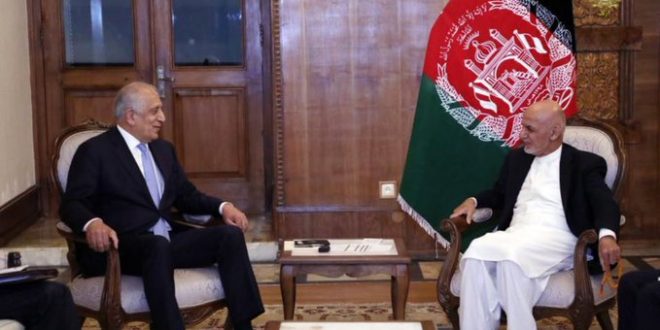The U.S. Special Envoy, Zalmay Khalilzad is back on his old mission to make easy, at some sorts, the meaningful talks between the Afghan and Taliban peace teams – also to thrive the US-Taliban deal signed last year. Since he enjoys good relations with Afghan leaders, and the Taliban, plus some regional countries where their roles are considered important, he might be able to form a national, regional and wider consensus on the Afghan peace process. Undoubtedly, we have this at the moment, but it should be further strengthened. No one can challenge national consensus, but still much homework is required. Indeed, the Afghan leaders are having differences of opinion, and each of them is looking in a different way to the process. But this is crucial to give a collective message to Khalilzad as his next stop is in Qatar, where negotiations with Taliban representatives are ongoing. There is an urgent need of one strong voice to come jointly and unitedly from our leaders in regards to the peace talks. Last time, President Ghani refused to meet Zalmay Khalilzad. Probably it was due to a proposal of interim-government formation where Khalilzad wanted to discuss with Ghani – an issue that Ghani all the time rejected as impossible motion till he is alive. But this time, both sides met and discussed next steps for the peace process and emphasized the importance of expediting efforts. Almost certainly, there is a change in the policy. It also amplifies that Khalilzad came with a comprehensive and full-fledged new Joe Biden Administration draft vision to expedite the peace process. Mr. Biden already showed strong support to the diplomatic process that is underway and to bring an end to the Afghan war that is closing out 20 years. But this time the Afghan leaders must not let it go and the Taliban once again took all the leverage as they did in the first round of intra-Afghan talks during former US President Donald Trump’s administration with a plethora of concessions. Though, U.S.-brokered peace talks between the Afghan government and the Taliban group began in September but progress has slowed and violence has risen, while there is also uncertainty over whether international forces will pull out troops by May as originally planned. In such an ambiguity scenario, the Afghan politicians have to use their brain and show maturity how to carry the talks with the Taliban, and also how to convince them to shun violence, or at least come to a common understanding to reduce violence and engage in meaningful talks. The Afghan leaders must bear in mind that Afghanistan is at defining moment.

 Afghanistan Times
Afghanistan Times



